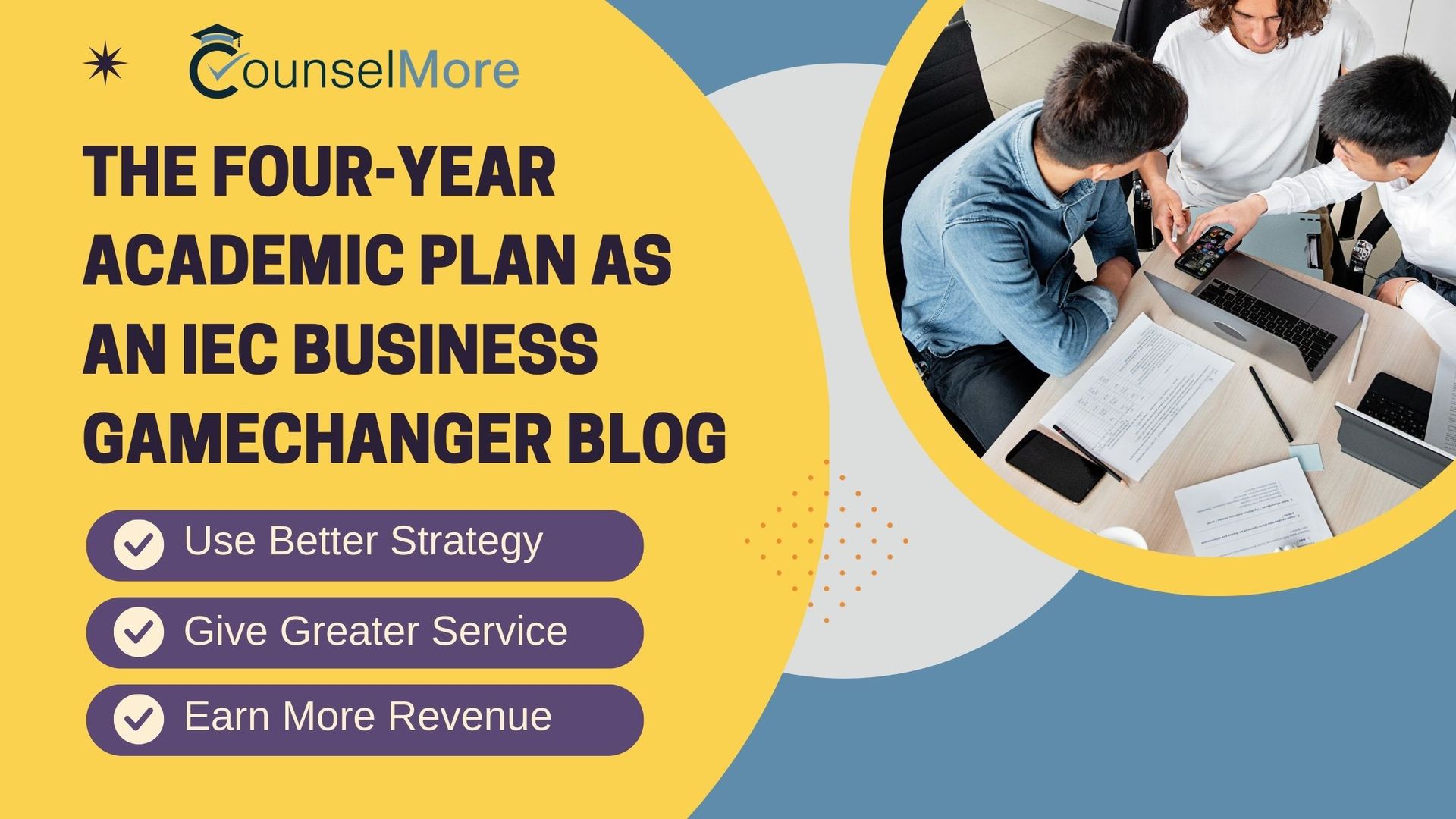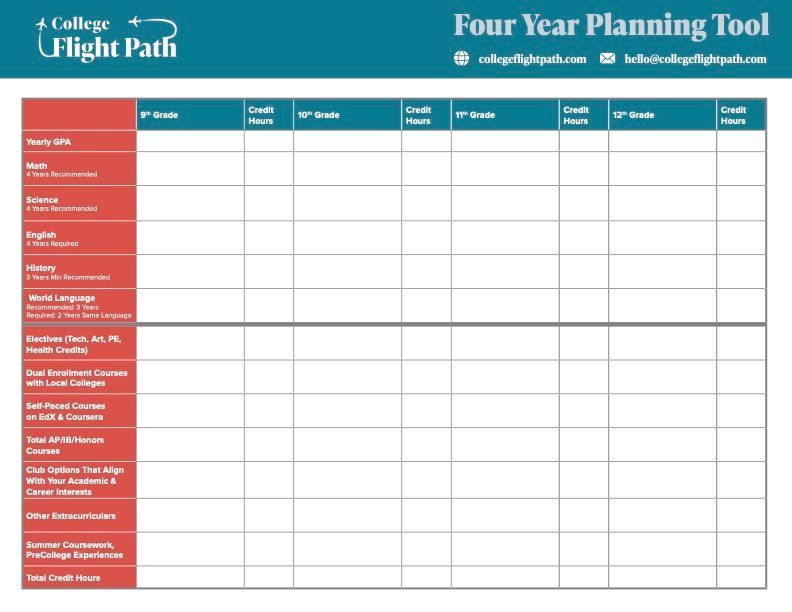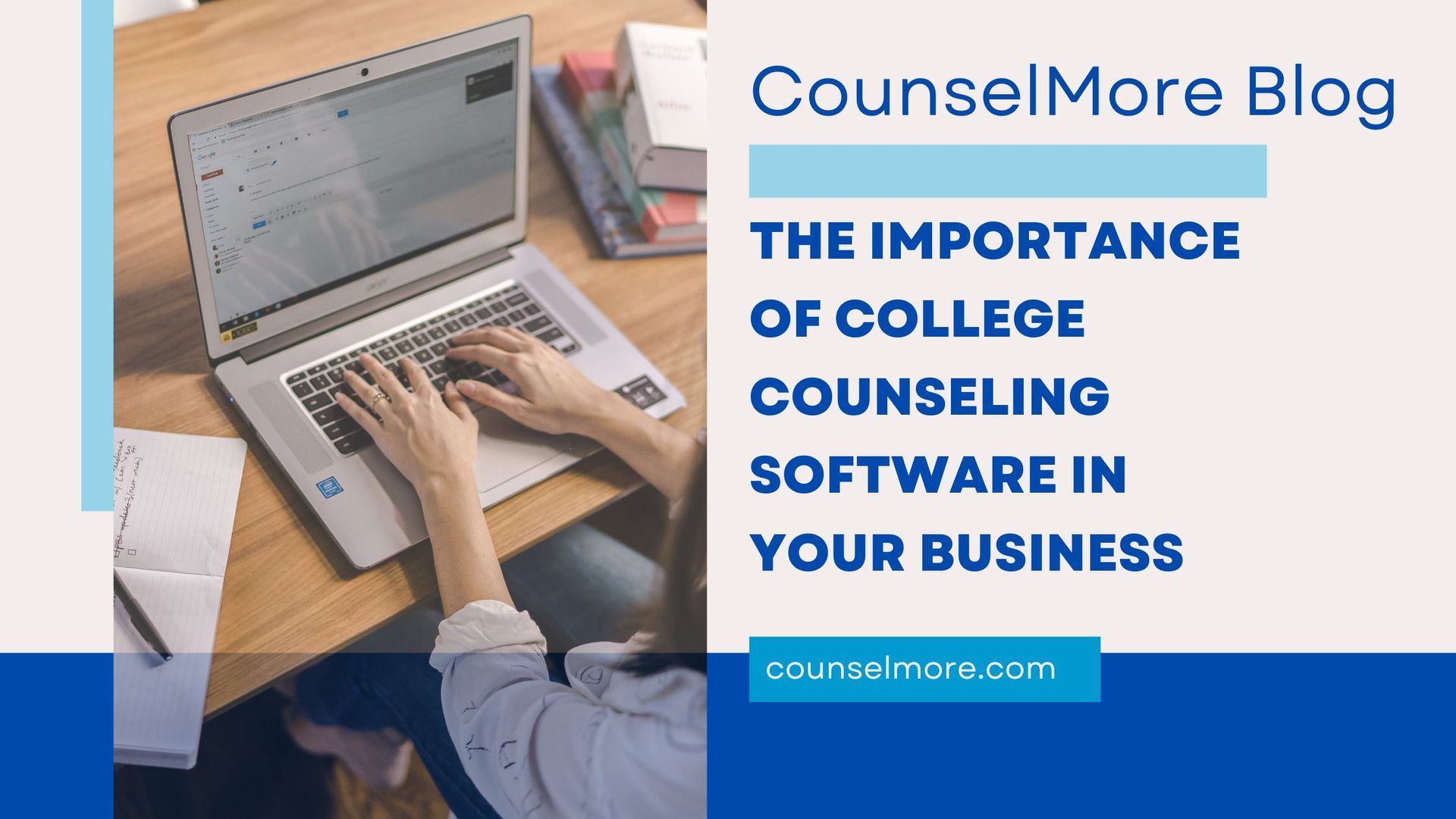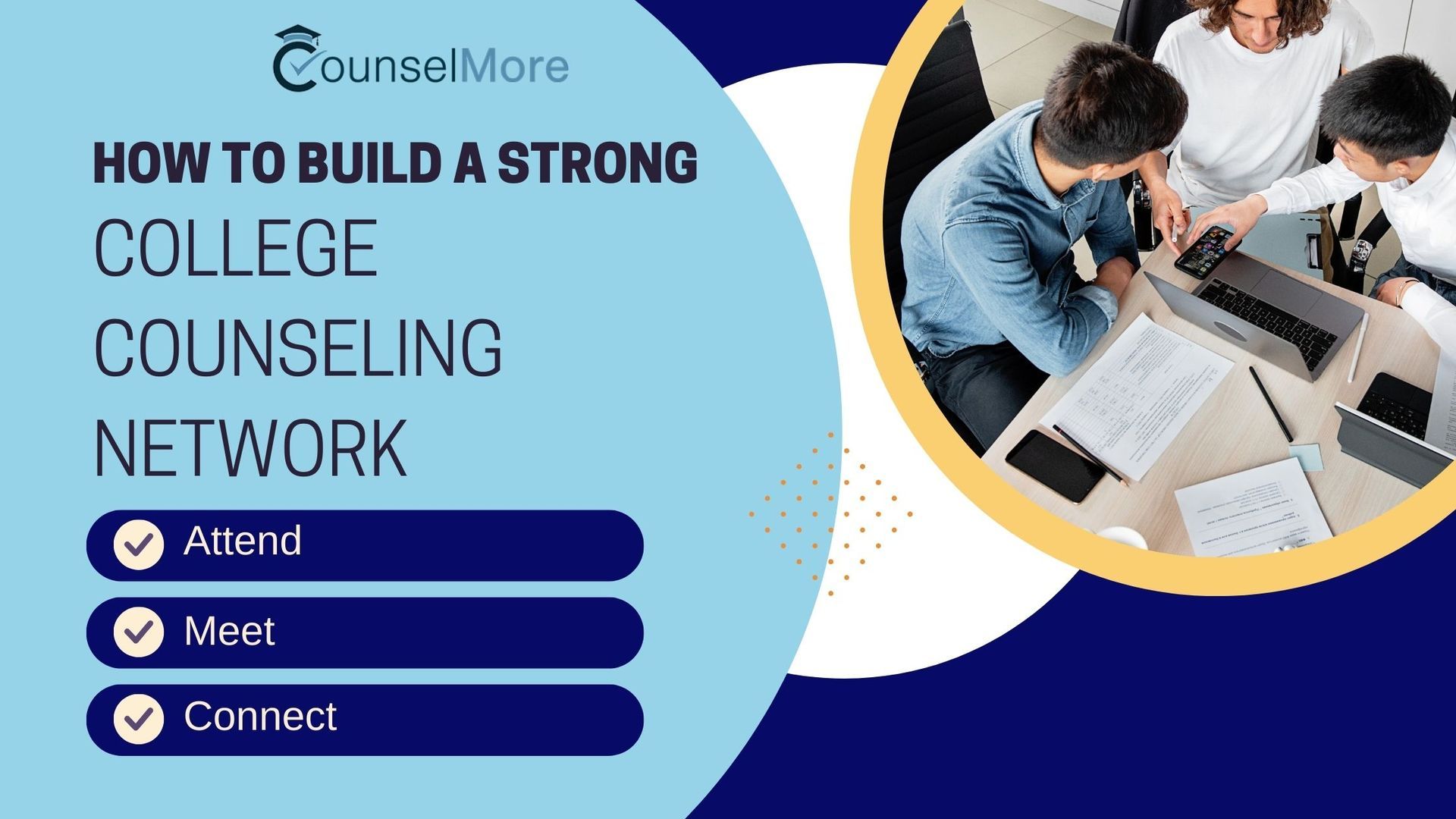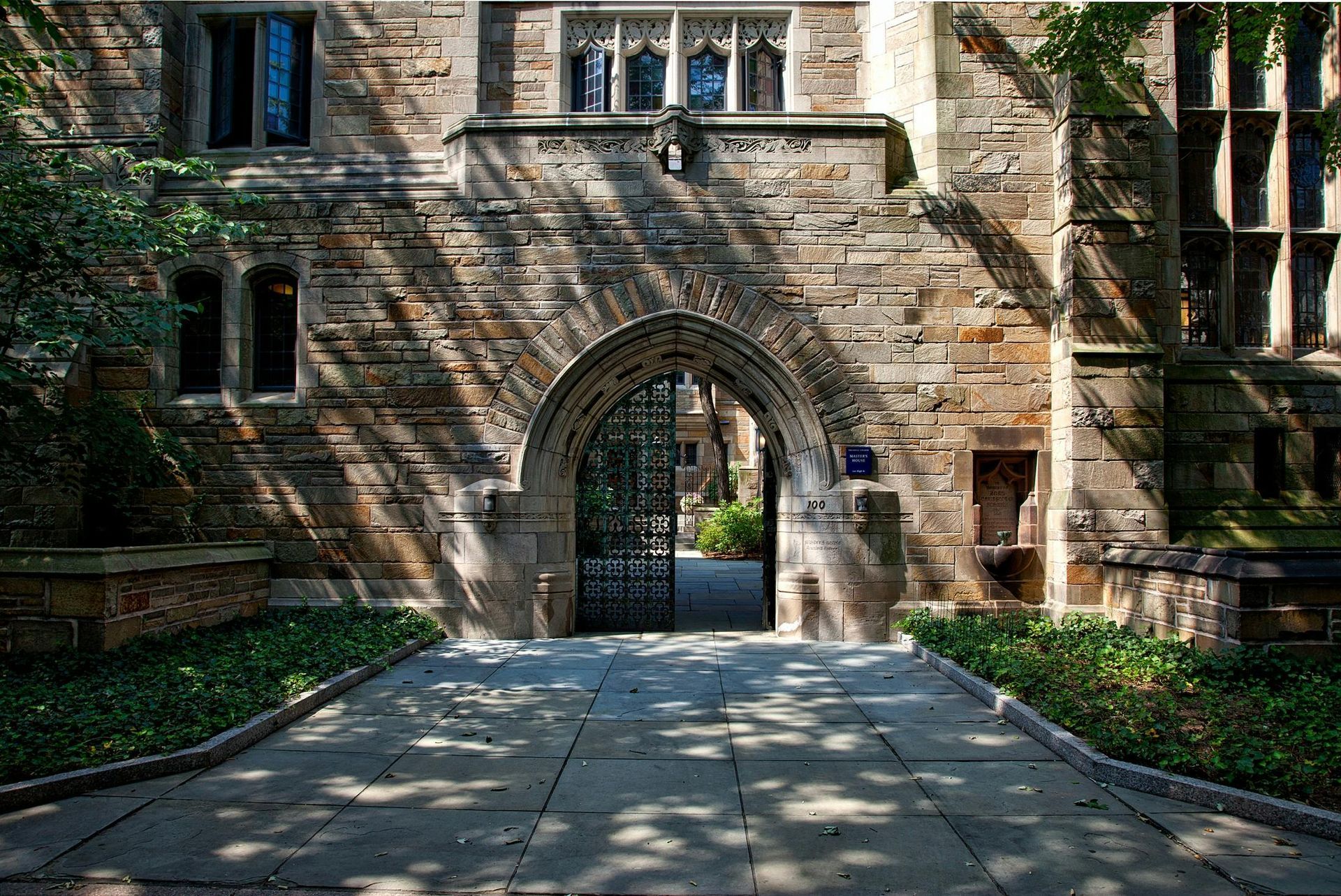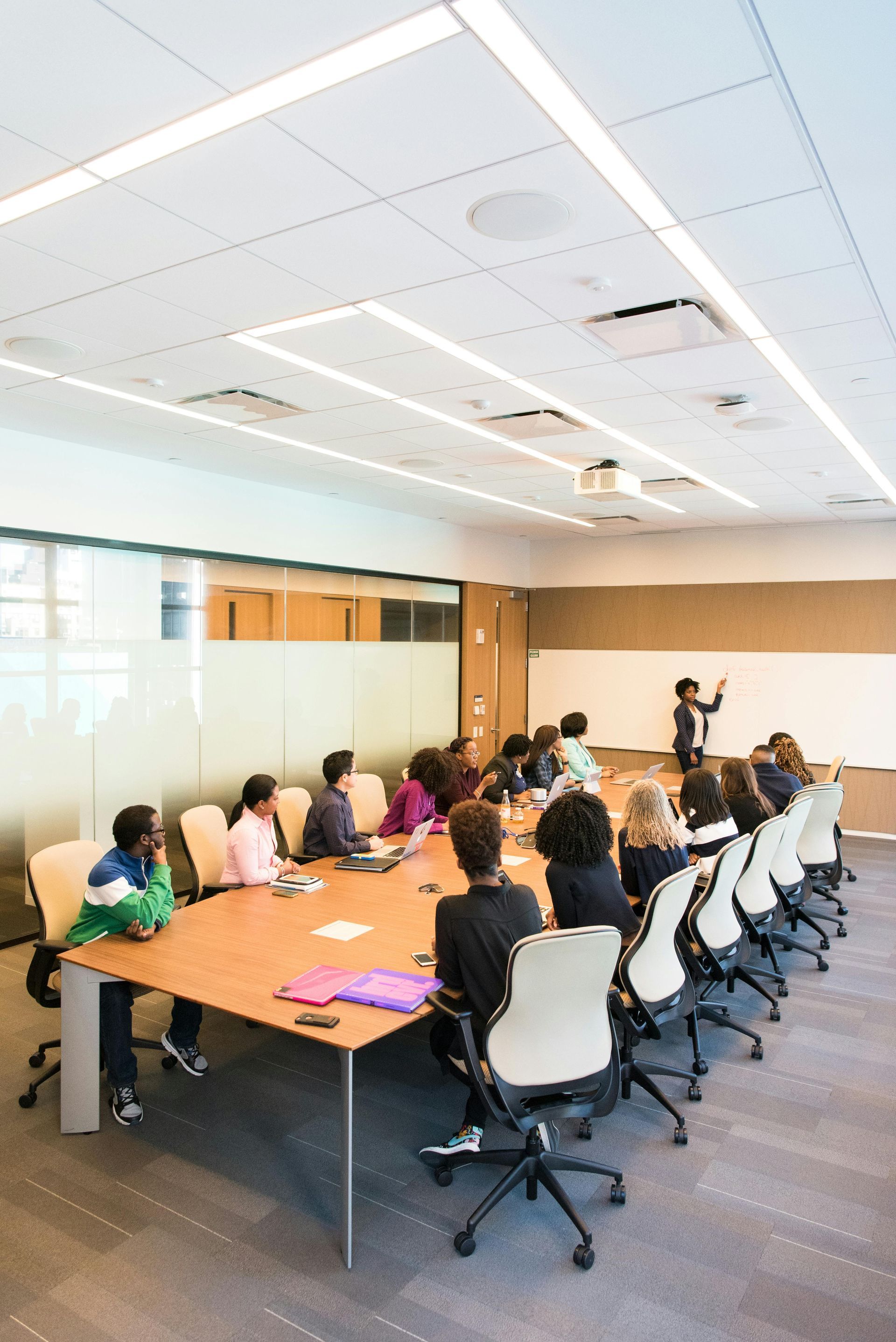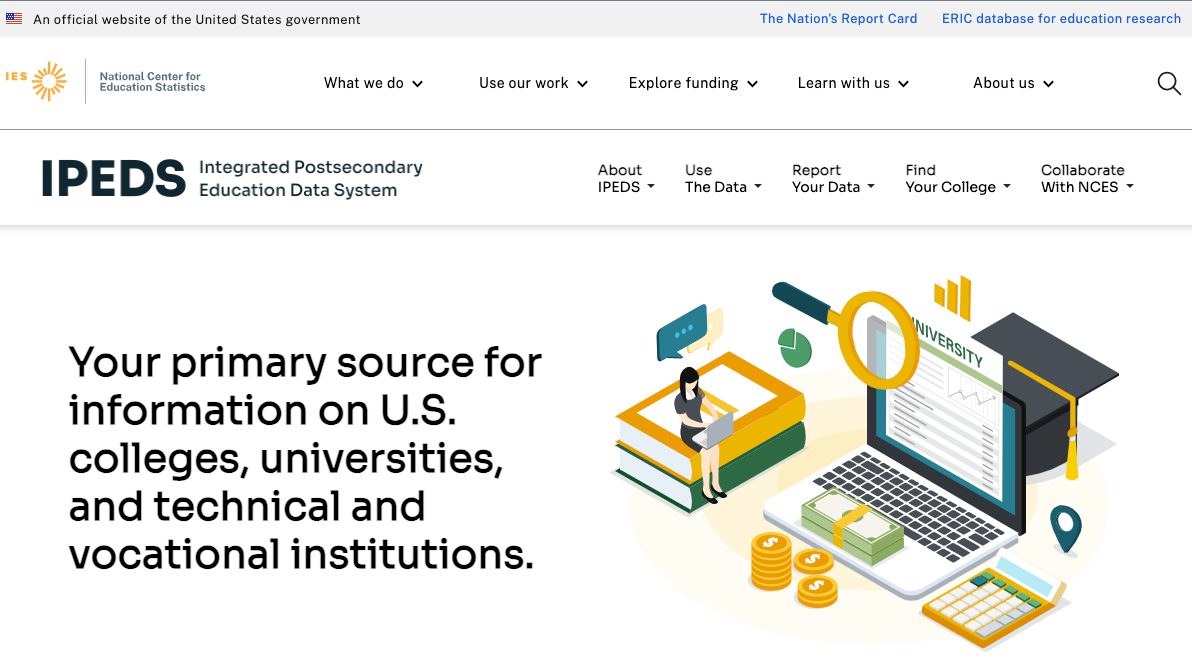The Four-Year Academic Plan as an IEC Business Game Changer
How I experienced the postsecondary process as a recruited D1 athlete is likely unique. I began visiting universities in the 7th grade to compete in various swim meets and improve my skills through the guidance of college coaches during summer camps. When I applied, I had toured 42
campuses and zeroed in on an athletic program that met my needs. However, I realized what I was pursuing was already a foregone conclusion – swimming in college – but I never really focused on my academic purpose. This backdrop highlights the transformative journey from athlete to Independent Educational Consultant (IEC), underscoring the pivotal role of academic planning.
Hindsight and Planning: An IEC's Perspective on Academic Purpose
Hindsight is always 20/20, but I realized that my journey would have been much more intentional if I engaged with my school counselor, academic advisor, and career mentor. I know that the insight I needed would have lived within a longitudinal, adaptable plan. Reflecting on this, it becomes clear how vital strategic academic planning is from an IEC's perspective, emphasizing the missed opportunities and the potential for guiding students toward more intentional educational and career outcomes.
Evolution of a Career: From Educator to Purpose-Driven IEC
Instead, I launched into business consulting and then meandered my way through the field of education in search of helping students but in positions that did not precisely fit my skillset or interests. This journey meant that I would spend nine years teaching history, coaching many sports, earning a few master's degrees, and working as a test prep tutor to make ends meet. My interests in college and career counseling became more defined during this time. This narrative highlights the importance of aligning one's career with personal talents and interests, illustrating the transition from various educational roles to a purpose-driven IEC.
The Four-Year Academic Plan: An IEC's Strategy for Student Success
Then, I began utilizing a four-year academic plan. I knew the idea wasn’t novel. Many IECs use a four-year strategy with their students. However, I approached it differently. I started each student with a guided series of questions that presented opportunities to engage in clubs, electives, and free coursework so students could hone their interests further. After all, the 8th-10th grade years should be seasons of experimentation. We want students explore their interests freely, but also intentionally. This planning model empowers students to navigate their interests and academic choices effectively, showcasing how IECs can facilitate student exploration and decision-making. See the image below to get a rough approximation of how I outline this:
Early Engagement: The IEC's Role in Maximizing High School Experience
Today, I aim to work with families during the course selection period. This begins in the 8th or 9th grade to help onboard students make the most of their high school experience. This approach advocates for early engagement by IECs, presenting the four-year academic plan as a means to explore career paths and interests without overwhelming students with advanced coursework. It also introduces the idea to parents and students to see me, their IEC, as a resource and a partner rather than another adult, giving them more work.
Another added benefit of this plan is that it makes subsequent years easier to navigate. When a student has spent their high school career exploring their interests and passions, they don’t have to spend their junior and senior years figuring out exactly what those are. This makes essays more effortless to write, future course selection even easier, and their college list easier to narrow.
Unlocking Opportunities: IECs, Career Paths, and Positive Mentorship
The four-year model has afforded me far more latitude with my families. That latitude enabled me to share with families unique trajectories that have resulted in incredible long-term career opportunities for my students. This section delves into how IECs can use the four-year academic plan to reveal long-term career opportunities for students, highlighting the importance of mentorship and purpose in promoting students' social and emotional development.
Charged by the pandemic, I returned to graduate school. I earned my master's degree in school counseling and mental health to see what occurred in school counseling offices in real-time. This reflective piece underscores the need for IECs to focus on purpose, structure, and connectedness in their academic planning efforts, especially in response to the pandemic's challenges.
Empowering IECs: Incorporating the Four-Year Academic Plan into Your Practice
During pre-college meetings, I illuminate how students can highlight meaning in their lives, what moments they have reflected on that were their turning points, and how to help them remain present to lean into their environments. This concluding section emphasizes the four-year academic plan as a vital tool for IECs to help students develop a sense of purpose and direction in their educational journeys.
If you want to incorporate a four-year academic planning model into your counseling practice, watch my talk on building this feature into your approach using the
CounselMore platform. This call to action encourages IECs to learn to integrate the four-year academic planning model into their practices, offering resources and support through the CounselMore platform.
About the Author
Works Cited
Blake, Jessica. “Feeling Adrift Drives Anxiety, Depression in Young Adults.” Inside Higher Ed, 1 Nov. 2023, www.insidehighered.com/news/students/physical-mental-health/2023/11/01/lack-purpose-drives-anxiety-depression-young-adults.
Sharma, Gitima, et al. “Examining the Role of Life Purpose in High School Students’ Self-Esteem through Structural Equation Modelling.” Heliyon, vol. 9, no. 9, 1 Sept. 2023, p. e19614, www.sciencedirect.com/science/article/pii/S2405844023068226#sec10, https://doi.org/10.1016/j.heliyon.2023.e19614. Accessed 30 Oct. 2023.

